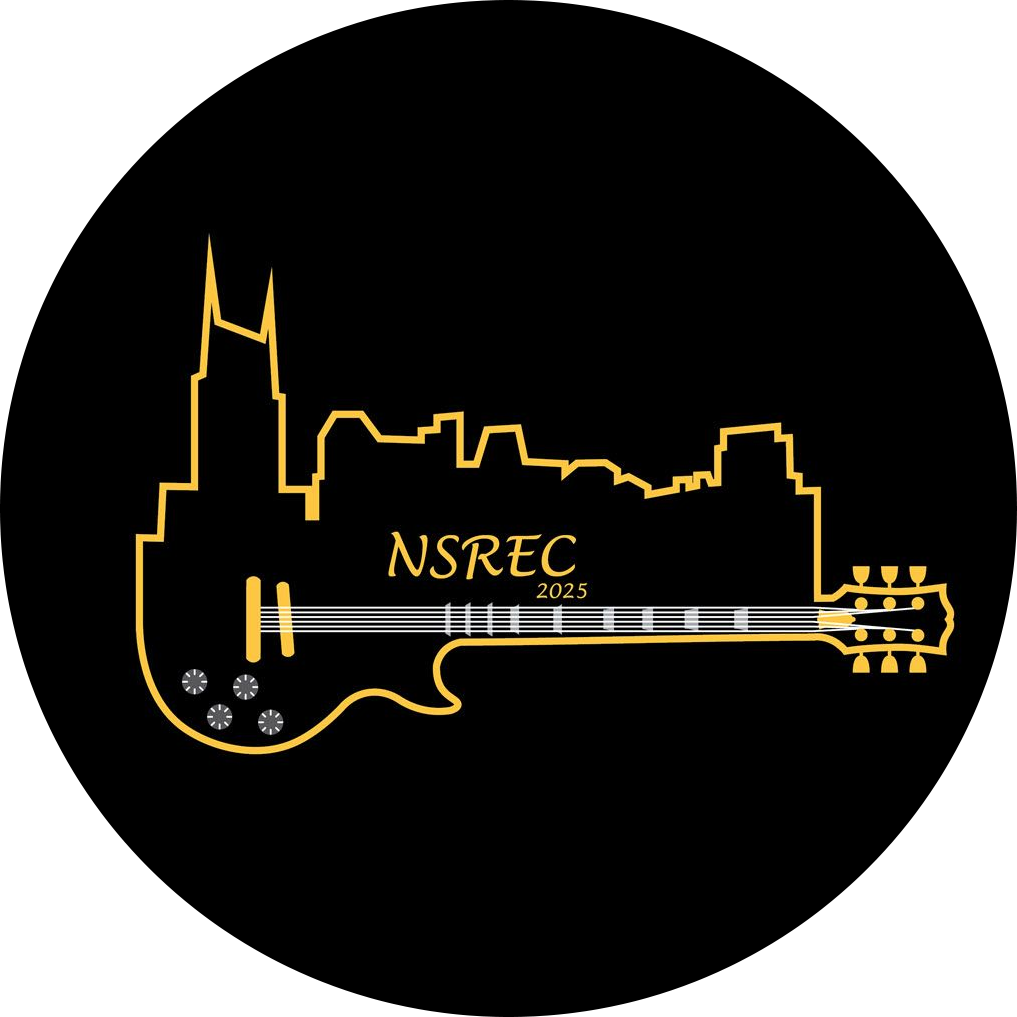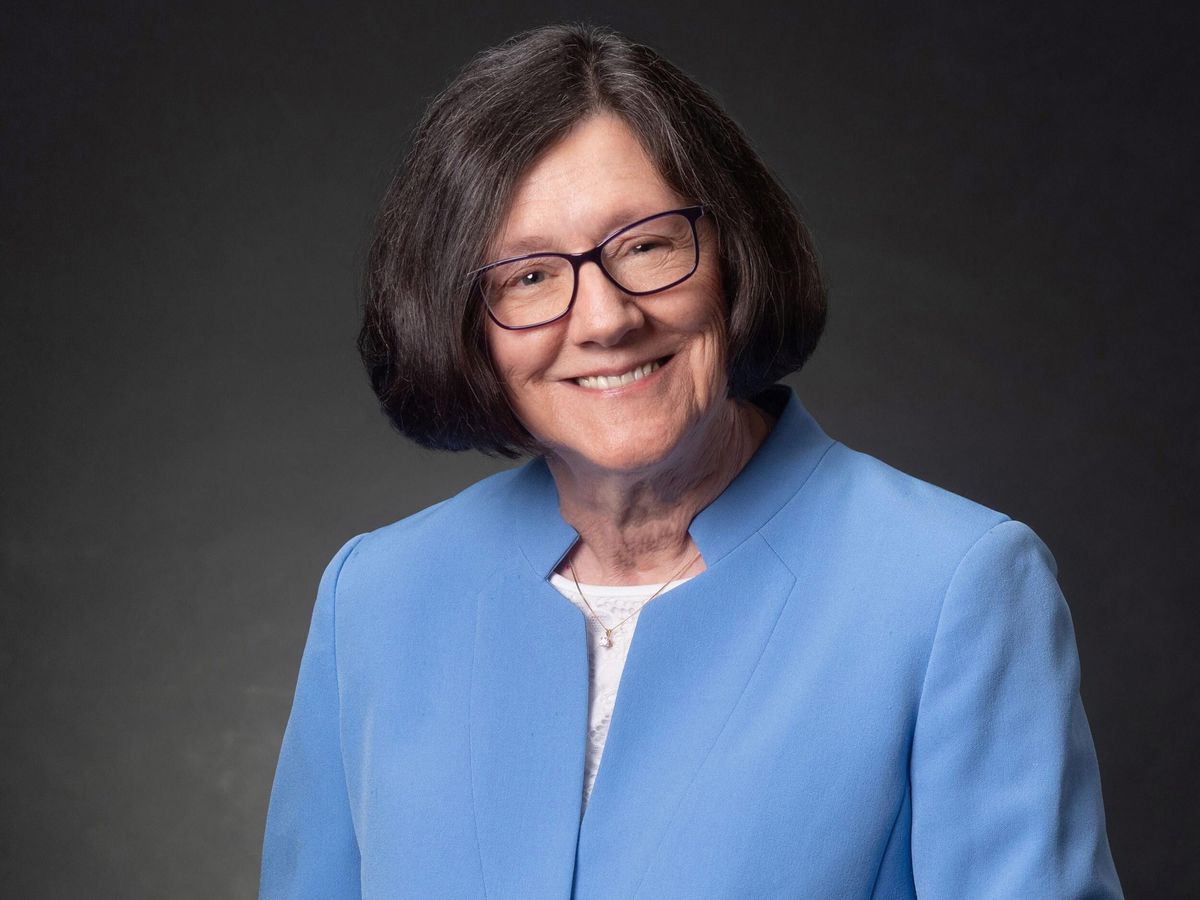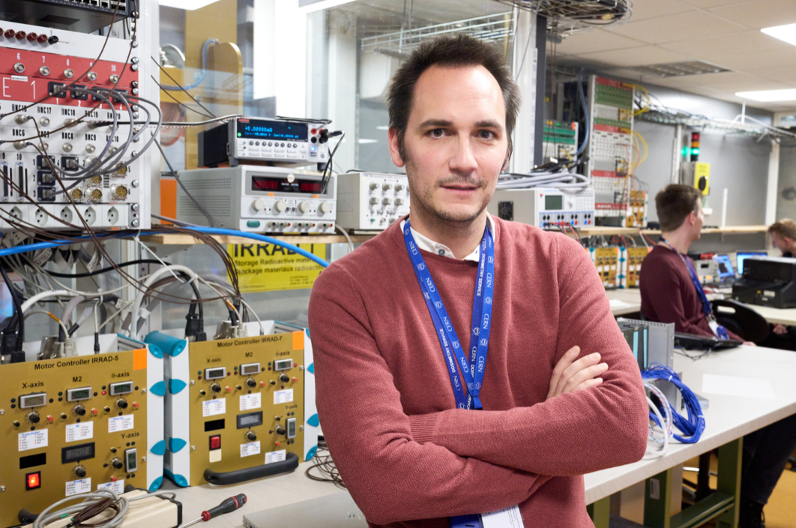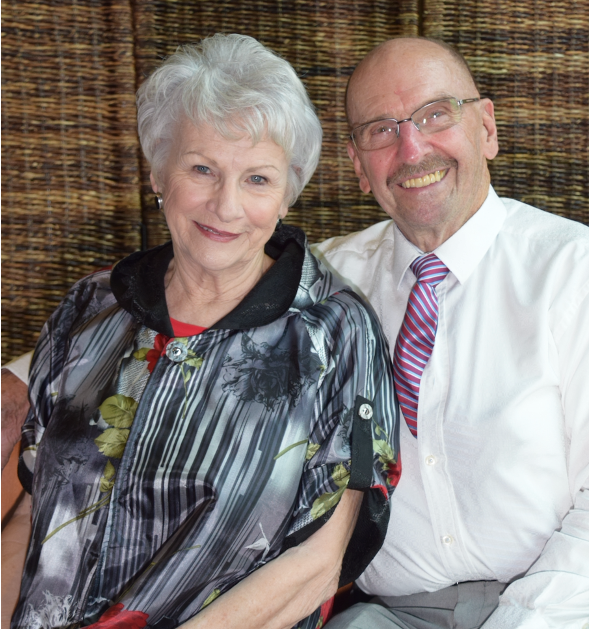Radiation Effects Steering Group Awards
Additional information regarding the Radiation Effects Committee (REC), Radiation Effects Steering Committee (RESG), past Radiation Effects Award winners, and NSREC and NPSS Awards can be found at http://ieee-npss.org/technical-committees/radiation-effects/.
Janet Barth
For leadership of and contributions to the advancement of the design, building, deployment, and operation of capable, robust space systems.
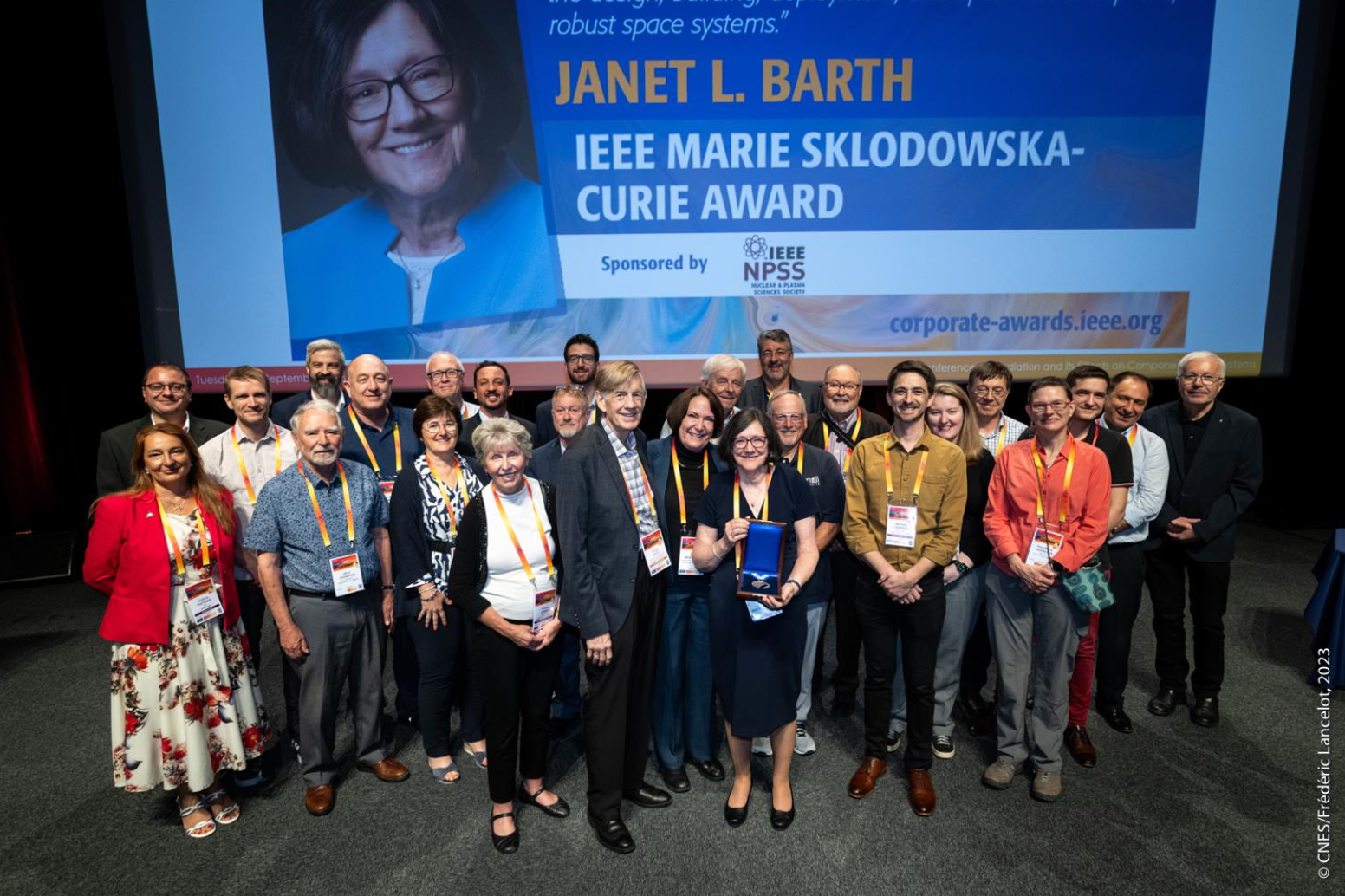
Ken LaBel
For sustained contributions to the radiation survivability of electronics in space and leadership across the radiation effects community.
Rubén García Alía
For contribution to the understanding of single event effects in microelectronics used in accelerator and space applications.
Dave and Melba Bushmire
In gratitude to Dave and Melba Bushmire for their exemplary service to the Nuclear and Radiation Effects Community
2022 NSREC Outstanding Conference Paper Award
Radiation-Induced Faults Propagation in Quantum Bits and Quantum Circuits
D. Oliveira, E. Auden, and P. Rech
2022 NSREC Meritorious Conference Paper Award
Fragmented High-Energy Heavy Ion Beams for Electronics Testing
R. García Alía, K. Bilko, F. Cerutti, A. Coronetti, N. Emriskova, L. Esposito, F. Salvat Pujol, A. Waets, S. Girard, F. Saigné, M. Durante, C. Schuy, and T. Wagner
2022 NSREC Outstanding Student Paper Award
Scaling Trends for Single-Event Cross-Section for Conventional D-FF at Bulk FinFET Technology Nodes
Y. Xiong, N. Pieper, A. Feeley, B. Narasimham, D. Ball, B. Bhuva
2022 NSREC Outstanding Data Workshop Presentation Award
A Heavy-Ion Single-Event Effects Test Facility at Michigan State University
S. Lidia, T. Glasmacher, S. Kim, G. Machicoane, P. Ostroumov, A. Stolz
2023 IEEE/NPSS Paul Phelps Award Recipients

Jeffrey Teng
Georgia Tech
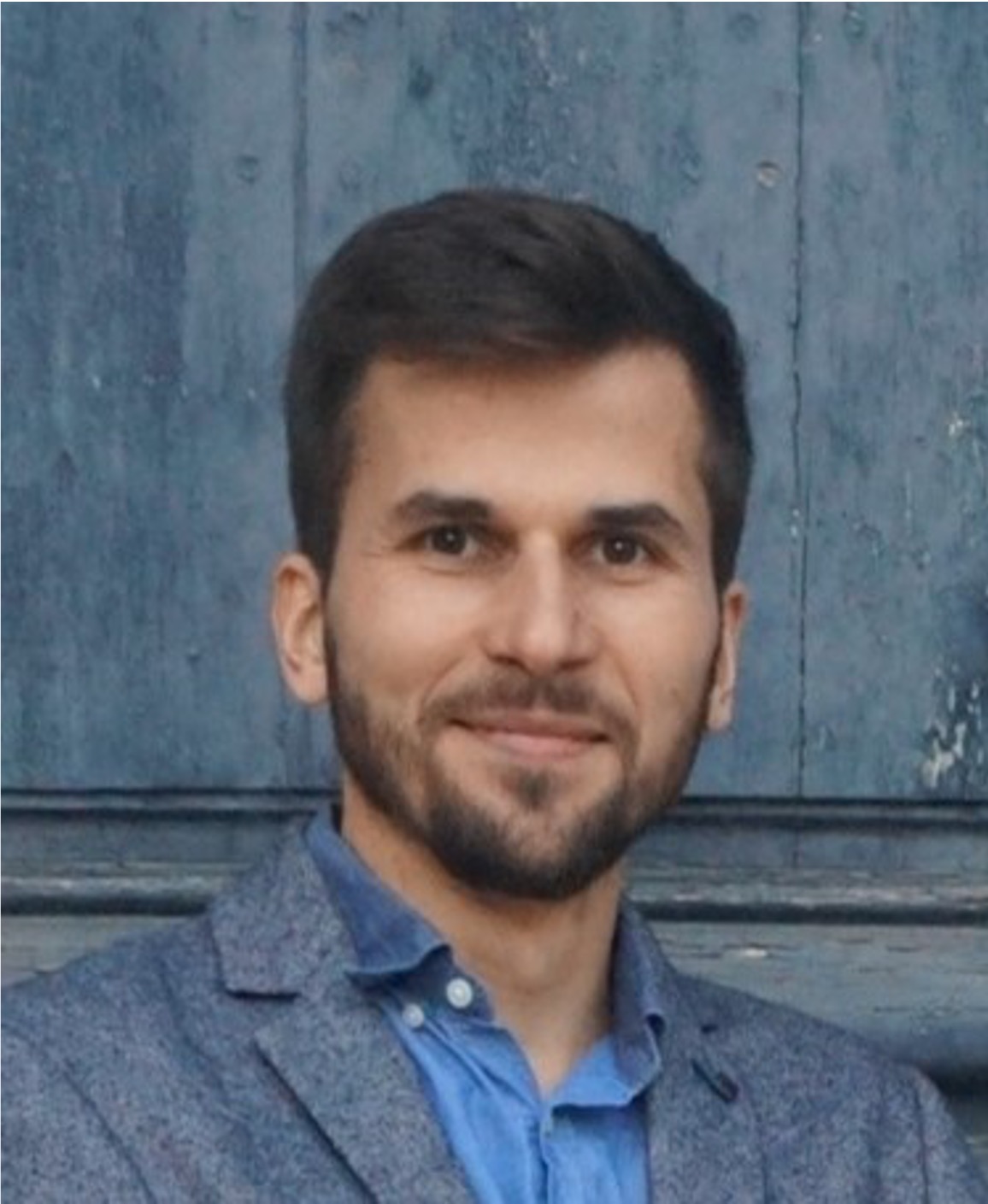
Tomasz Rajkowski
Université de Montpellier

Sarah Azimi
University of Trento

Yoni Xiong
Vanderbilt University
Radiation Effects Award
&
Radiation Effects Early Achievement Award
Nominations are currently being accepted for the 2024 Radiation Effects Award and the 2024 Radiation Effects Early Achievement Award.
The winners of the awards will be announced Tuesday morning, July 23 at the 2024 NSREC in Ottawa, Canada.
Cash awards and plaques will be presented at that time. Please submit nominations online by following links to the Radiation Effects Award Submission and the Radiation Effects Early Achievement Award Submission. Please reach out to Mike Tostanoski, Senior Member-at-Large for the Radiation Effects Steering Group, with any questions. Mike can be contacted at mtostanoski@radiationtestsolutions.com.
Radiation Effects Award
The purpose of the Radiation Effects Award is to recognize individuals who have had a sustained history of outstanding and innovative technical and/or leadership contributions to the radiation effects community. The basis of the award is for individuals who have: (1) a substantial, long-term history of technical contributions that have had major impact on the radiation effects community. Examples include benchmark work that initiated major research and development activities or a major body of work that provided a solution to a widely recognized problem in radiation effects; and/or (2) a demonstrated long-term history of outstanding and innovative leadership contributions in support of the radiation effects community. Examples include initiation or development of innovative approaches for promoting cooperation and exchange of technical information or outstanding leadership in support of the professional development of the members of the radiation effects community.
Radiation Effects Early Achievement Award
The purpose of the Radiation Effects Early Achievement Award is to recognize an individual early in his or her career whose technical contributions and leadership have had a significant impact on the field of radiation effects. The basis of the award is for individuals whose technical contributions and leadership during the first ten years of the recipient’s career that have had a major impact on the Radiation Effects Community. Examples include work that provides a solution to important technical problems in radiation effects or work that identifies significant new issues in the field. Other factors are cumulative research contributions over the first part of the career, internationally recognized leadership, and mentorship. It is the intent of the RESG to give special consideration for this award to members of the community who are IEEE/NPSS members.
Suggested Nomination Strategy
At the 7th or 8th year mark in the individual’s career, evaluate the impact of the meritorious criteria that supports an NPSS nomination. A good resource to check is the citations for past awardees [https://ieee-npss.org/technical-committees/radiation-effects/]. Note that there is strong emphasis on pioneering technical contributions and less emphasis on leadership. If you feel the nomination will be competitive, submit the individual for the NPSS Award at this time.
In the case that the individual is not selected, there is still time to submit a nomination for the Radiation Effects Award.
In the case that the individual is selected, he or she has another year or two to excel in a different aspect of his or her work and could possibly qualify for the Radiation Effects Early Career Award.
Radiation Effects Award for Exemplary Service to Meetings and Conferences
The purpose of the award is to recognize a member of the Radiation Effects community who has demonstrated exemplary services to the meetings and conferences of the Radiation Effects Committee over a sustained period. The basis of the award is for members of the Radiation Effects community who have demonstrated exemplary services to the meetings and conferences of the Radiation Effects Committee over a sustained period of at least five years. Student members are not eligible to be nominated for the award. The nominee is not required to be a member of the IEEE and NPSS.
Phelps Continuing Education Grant
Grant Description
To promote continuing education and encourage membership in NPSS.
Nominations are currently being accepted for the Paul Phelps Continuing Education Grant. The deadline for submitting nominations is January 29 of each year.
Selection Criteria
Exceptional promise as a student, postdoc or research associate in any of the fields of NPSS, or exceptional work in those fields by currently unemployed NPSS members with an expectation that attendance to one or more of the Short Courses will result in an improved possibility of obtaining a job in an NPSS field.
Eligibility
Outstanding members of NPSS who are either Student Members, Post-Doctoral Fellows or Research Associates, or unemployed members needing assistance in changing career direction.
Grant Presentation and Prize
$750 will be provided to each grant recipient to be used to cover tuition costs and/or travel costs to attend the current year IEEE NSREC Short Course and a certificate will be presented at the IEEE NSREC Short Course.
Nomination Form
Please follow the link to the Phelps Continuing Education Grant online form to nominate a candidate. Additional information can be obtained from Megan Casey, Member-at-Large for the Radiation Effects Steering Group. Megan can be reached at megan.c.casey@nasa.gov.
